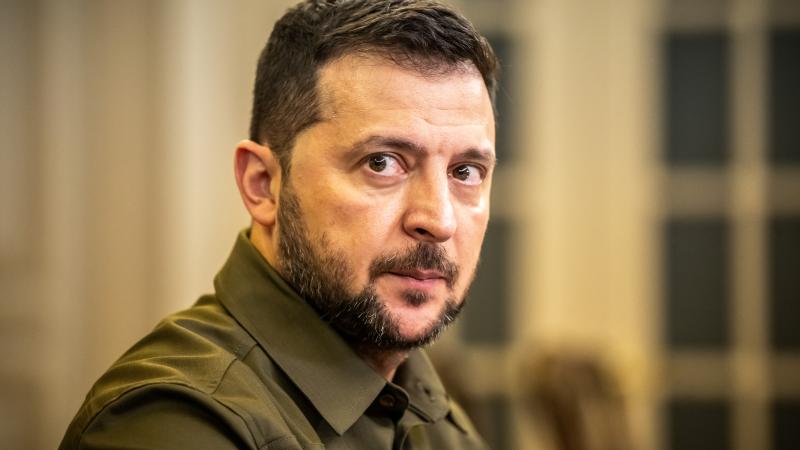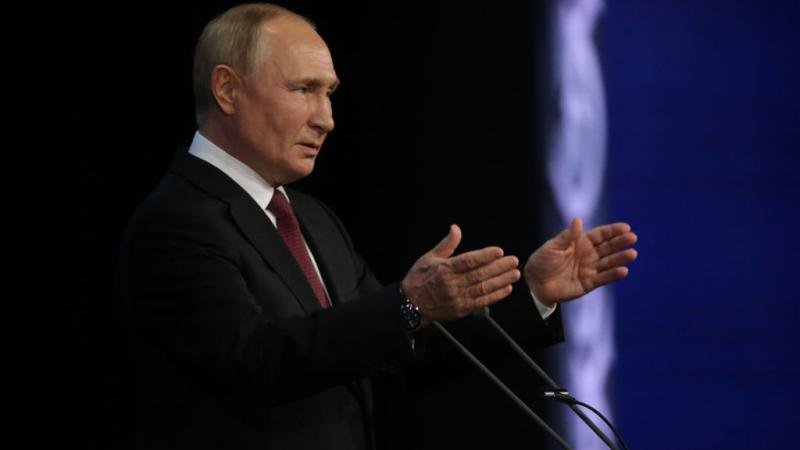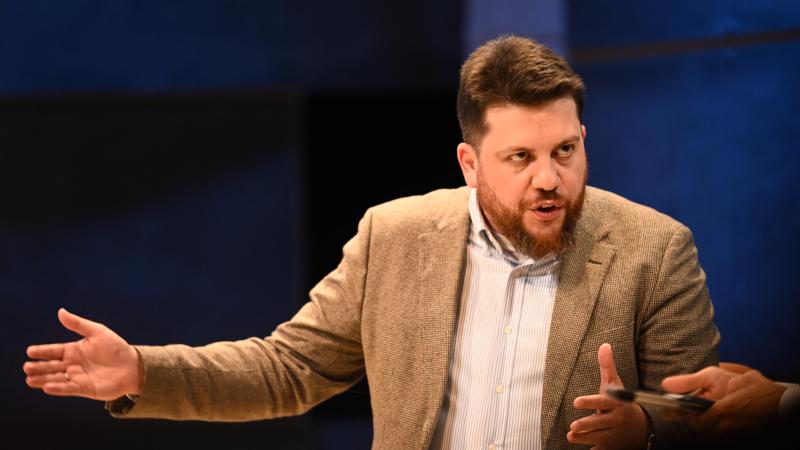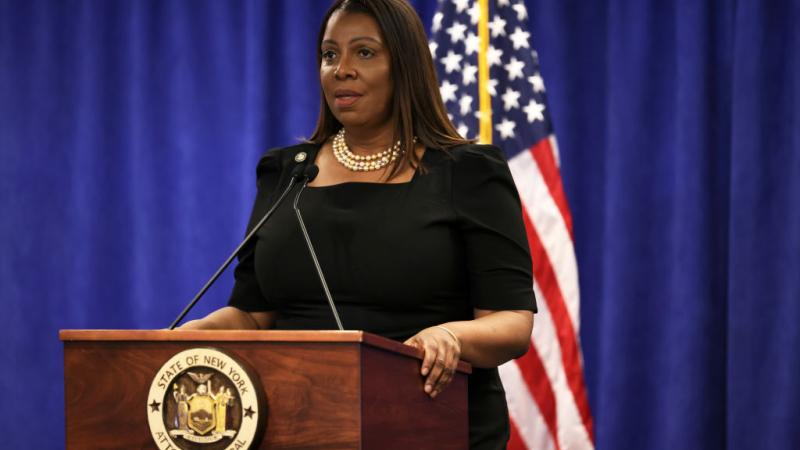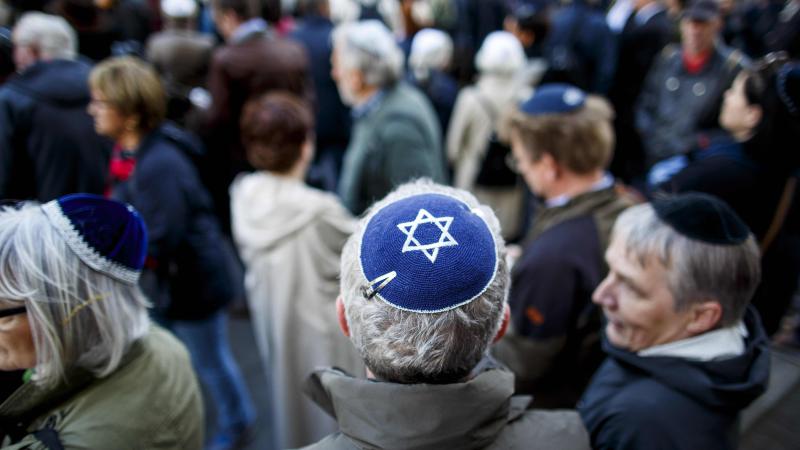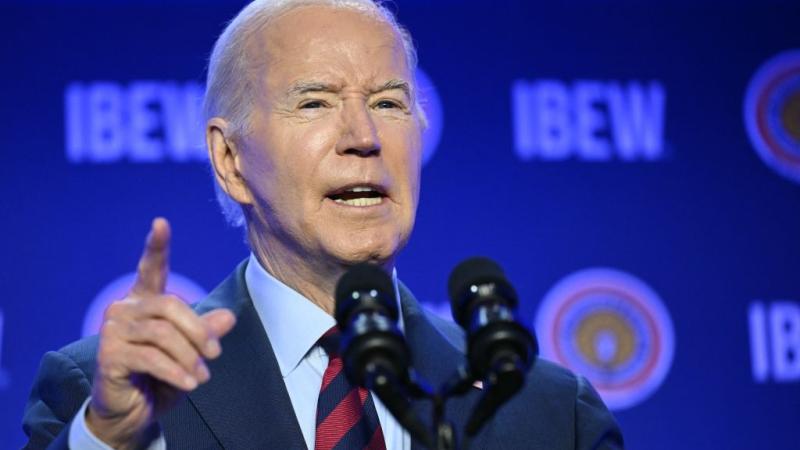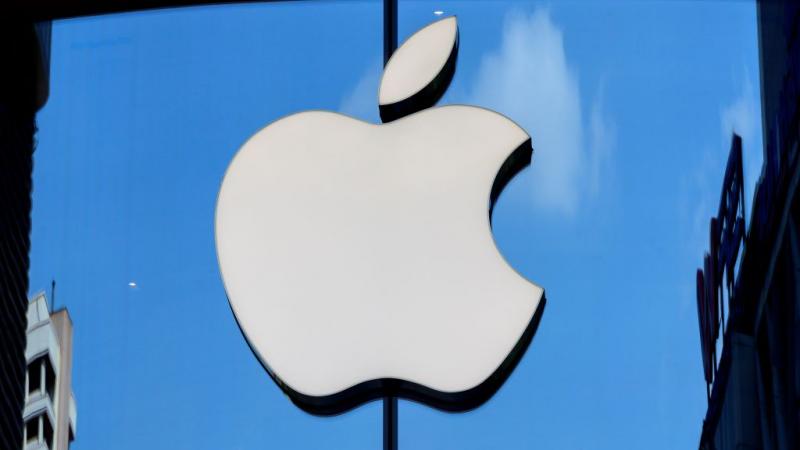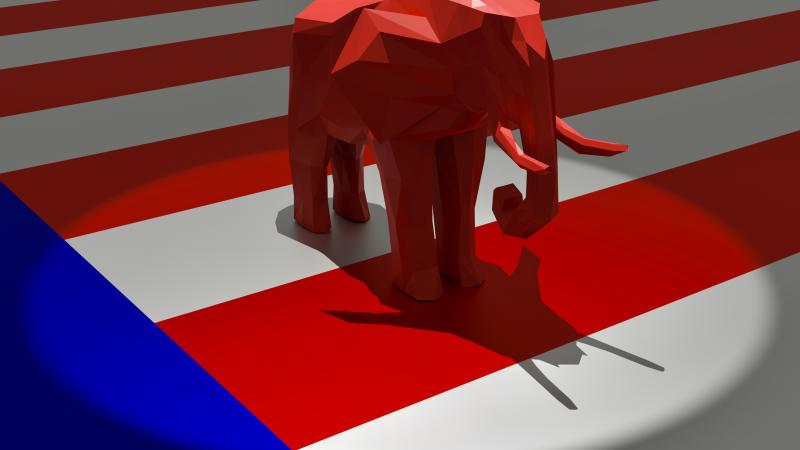Steele's defense of dossier collides with an avalanche of evidence to the contrary
Even statements by Steele's lawyers, his main source and his friends undercut his claim about the "professionalism" of his now-infamous dossier.
Christopher Steele, the former British spy whose dossier fed both a media and law enforcement frenzy over now-discredited allegations that Donald Trump colluded with Russia, has resurfaced in a media documentary to argue his work for Hillary Clinton's campaign law firm was professional and well-sourced.
"I stand by the work we did, the sources that we had, and the professionalism which we applied to it," Steele told ABC News host George Stephanopoulos in an interview aired Sunday that was part of a larger documentary released Monday on Hulu.
Steele's defense, however, flies in the face of an avalanche evidence — some of it offered by his lawyer and his friends and his own primary intelligence source — that he had not corroborated much of the intelligence he gave to the FBI during the 2016 election and that he suffered from strong anti-Trump biases.
Steele was terminated by the FBI as a confidential human source on Nov. 1, 2016 for leaking, and his work has been widely discredited and criticized by several subsequent investigations. His own legal team has also claimed Steele failed to aggressively validate the allegations he penned.
In a British court case he lost, Steele's own lawyer told the judge that Steele simply passed on raw information from sources he knew and trusted but did little to verify, even admitting the information would not pass an accuracy test for a court of law and should not be held to a high. bar of accuracy.
"It is raw intelligence. It is the basis for further investigation by the recipients," the lawyer argued last year. "So to put the bar too high in terms of establishing accuracy at that stage would be quite wrong in principle.
"We can say the critical consideration is that his confidential human intelligence was not factual evidence to be used in a personal or public report or in court or anything like that. We have just discussed what it was. It was raw intelligence to be passed on as part of a much bigger intelligence picture."
In fact, Steele's British lawyer even suggested that the news organization who published his dossier, Buzz Feed, was reckless to publish the information because of its unverified nature. "It was an editorial decision, probably a bad editorial decision, we say it was a bad editorial decision," the lawyer argued.
You can read the lawyer's statements here:
The lack of verification was confirmed by an FBI spreadsheet that tracked every statement in the Steele dossier and found that the vast majority were disproven, never verified or Internet rumor. You can read that spreadsheet here:
Likewise, U.S. intelligence warned the FBI within weeks of Steele's dossier being received that some of the information in it was Russian disinformation inserted into Steele's network of sources by Moscow's intelligence services, according to declassified footnotes from the Justice Department watchdog report that faulted the FBI for failing to alert the FISA court to the weaknesses in Steele's reporting.
U.S. intelligence "stated that it did not have high confidence in this subset of Steele's reporting and assessed that the referenced subset was part of a Russian disinformation campaign to denigrate U.S. foreign relations," the footnote declared.
Those same footnotes reveal that Steele's primary sub-source, upon whom he built the dossier, was suspected of being tied to Russian intelligence and was even the target of an FBI counterintelligence probe.
You can read those footnotes here:
Tom Fitton, the president of the conservative watchdog group Judicial Watch that sued to unearth many of the documents undercutting Steele's dossier, told Just the News on Monday he was dismayed that the ABC interview did not go far enough to challenge Steele's veracity.
"I was disappointed that ABC ... gave him, you know, more time to spread this disinformation," Fitton said in an interview with the John Solomon Reports podcast. "You know he's been, in my view, thoroughly debunked by official and unofficial investigations, documents you've uncovered, we've uncovered, the IG has uncovered."
When interviewed by the FBI in January 2017, Steele's primary sub-source acknowledged having contact with Russian intelligence and giving Steele information from bar talk and gossip. He disowned some of the information attributed to him. At various times he used terms like "inconclusive," "has no idea," and "did not know the origins" of information attributed to him or his network of sources, according to the FBI's own notes of the source's interview.
You can read those notes here:
Even friends of Steele raised serious concerns about his dossier. Former National Security Council expert Fiona Hill, whom Steele testified introduced him to his primary Russian sub-source, told Congress she believes Steele may have been compromised by Russian intelligence disinformation and dismissed his dossier as a "rabbit hole."
"It's very likely that the Russians planted disinformation in and among other information that may have been truthful, because that's exactly, again, the way that they operate," she told lawmakers in 2019.
Bruce Ohr, the senior Justice Department official who passed along Steele's information to senior FBI and DOJ officials in summer 2016, cautioned agents it was unverified raw intelligence and that Steele was seemingly "desperate" to defeat Trump.
Steele himself acknowledged bias when he was reinterviewed in fall 2017 along with one of his business partners Christopher Burrows nearly a year after his termination as an informant, according to the FBI's now-declassified interview report.
"STEELE and BURROWS described President TRUMP as their 'main opponent' and indicated that they were fearful about how Trump's presidency negatively impacted the historical US-UK alliance and the US-UK special relationship," the memo stated.
You can read that full memo here.
So just how bad was Steele’s information passed to U.S. officials during the election?
The FBI and Special Prosecutor Robert Mueller both concluded that one key allegation — that Trump lawyer Michael Cohen met secretly with Russian intelligence in Prague in summer 2016 — was false. Cohen denied it, and his passport showed he never went to the Czech Republic during that time frame, they reported. U.S. intelligence concluded the Cohen tale was likely one of the Russian sources of disinformation, according to the footnotes from the DOJ inspector general report.
Likewise, the FBI and Mueller concluded Trump adviser Carter Page never met with two senior Russians close to Vladimir Putin as the dossier alleged.
And a senior State Department official named Kathleen Kavalec recounted to the FBI how Steele met with her in October 2016 and peddled a story about how Russians were funding some of their election influence operations through their consulate in Miami. There was just one problem with Steele's allegation.
"It is important to note that there is no Russian consulate in Miami," Kavalec wrote in notes she shared with the FBI, exposing just how little due diligence Steele conducted on the allegations he peddled.
In his testimony in the British data privacy case he lost to two Russian bankers maligned by his dossier, Steele admitted he had "not personally been to Russia" to investigate the claims he made in his dossier and that most of the information came from hearsay he gathered from Russians and others in London.
You can read that testimony here:
In the end, the British judge ruled against Steele and ordered him to pay damages for the same reasons the FBI dismissed his dossier: Key allegations he spread around Washington weren't verified, and inadequate effort was given by Steele to validate them.
"The steps taken to verify that proposition fell short of what would have been reasonable," Justice Mark Warby wrote. "... The allegation clearly called for closer attention, a more enquiring approach, and more energetic checking." You can read that ruling here:
In his ABC interview, Steele acknowledged his dossier was imperfect even while defending it. He also claimed he was unwilling to concede that information like the Cohen allegation were untrue.
"I'm prepared to accept that not everything in the dossier is 100%," he said. "I have yet to be convinced that [the Cohen allegation] is one of them."
That leaves Steele in a very small crowd since friends like Hill and Ohr, investigators like the FBI and Mueller and judges like Warby have all found his work to be severely lacking.

